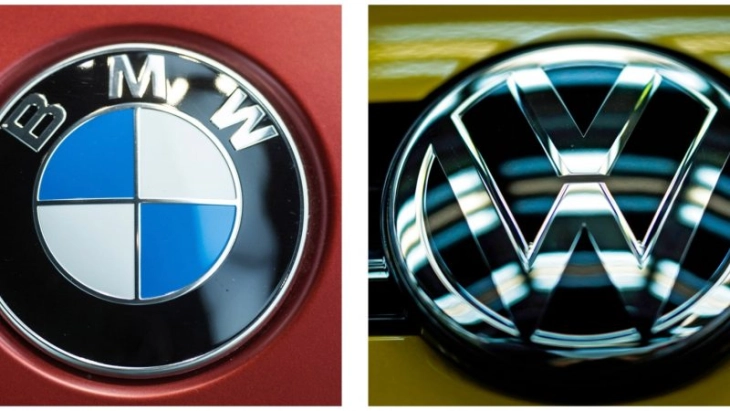EU fines BMW, VW 875 million euros for clean emissions tech cartel
- Post By Nevenka Nikolik
- 13:21, 8 July, 2021

Brussels, 8 July 2021 (dpa/MIA) – The European Commission fined BMW and Volkswagen 875 million euros (1 billion dollars) on Thursday for colluding on the development of emissions-cleaning technology for diesel cars.
Five carmakers – Daimler, BMW, VW plus its group brands Audi and Porsche – restricted competition that could have helped clean up air more quickly, Margrethe Vestager, the bloc’s top competition official, told journalists in Brussels.
For more than five years between 2009 and 2014, the companies arranged among each other not to compete to go beyond what was required by EU emission standards, the commission vice-president said. “And they did so despite the relevant technology being available.”
“All citizens must be able to trust that car manufacturers compete with one another also when it comes to reducing harmful emissions from cars,” Vestager stressed.
The penalties concern the development of technology using so-called AdBlue or urea, which is injected into the exhaust gas stream to reduce nitrogen oxide (NOx) emissions – harmful to both human health and the environment.
Volkswagen must pay close to 500 million euros, and BMW close to 375 million euros.
All parties acknowledged the cartel and agreed to settle, the commission said, but Daimler avoided a fine of some 727 million euros as it revealed the existence of the scheme.
The fine issued is smaller than BMW at least had initially feared. In 2019, the Munich-based company set aside 1.4 billion euros in anticipation. But in May, the company announced it had released 1 billion euros of this because the commission had dropped certain allegations.
The collusion occurred in so-called “circle of five” technical meetings between BMW, Daimler, VW, Audi and Porsche, according to the commission, which acts of the watchdog of the bloc’s strict competition rules.
Concretely, the carmakers settled among other things on a tank size for AdBlue and on the range until the next refill was required, despite knowing that injecting more of the liquid could reduce NOx pollution in many cases, Vestager said.
“Today’s case is about how legitimate cooperation has gone wrong. Carmakers developed a very good technology, but decided not to compete to exploit it to its full potential,” she stated.
The antitrust fines issued on Thursday are separate from the global diesel emissions scandal that kicked off in 2015, though similarly it involves environmental concerns.
Volkswagen said it would check the ruling and take legal steps. Setting clear guidelines for the automotive sector would have been more effective than a fine, the company said.
BMW said Brussels had strode into uncharted competition law territory, because the case did not involve typical cartel behaviour like price-fixing or divvying up markets.
Nonetheless, the fines were handed down along the lines of “classic” antitrust concerns, BMW charged.
The commission began its investigations in earnest with inspections at the offices of BMW, Daimler, Volkswagen and Audi in Germany in October 2017.
In 2019, the EU executive formally notified the companies of its preliminary conclusions following a formal probe opened the previous year.
Back then, the commission found that they had colluded between 2006 and 2014 in relation to two systems to reduce NOx emissions from diesel cars, as well as harmful particulate matter released by cars with petrol engines.
The commission’s final conclusions presented on Thursday were therefore more limited in scope.
Reports about a possible cartel caused a stir in the summer of 2017 – almost two years after the VW diesel scandal came to light. At times, there was talk of an impending “second” such scandal. The carmakers initially fended off the accusations of illegal agreements.







